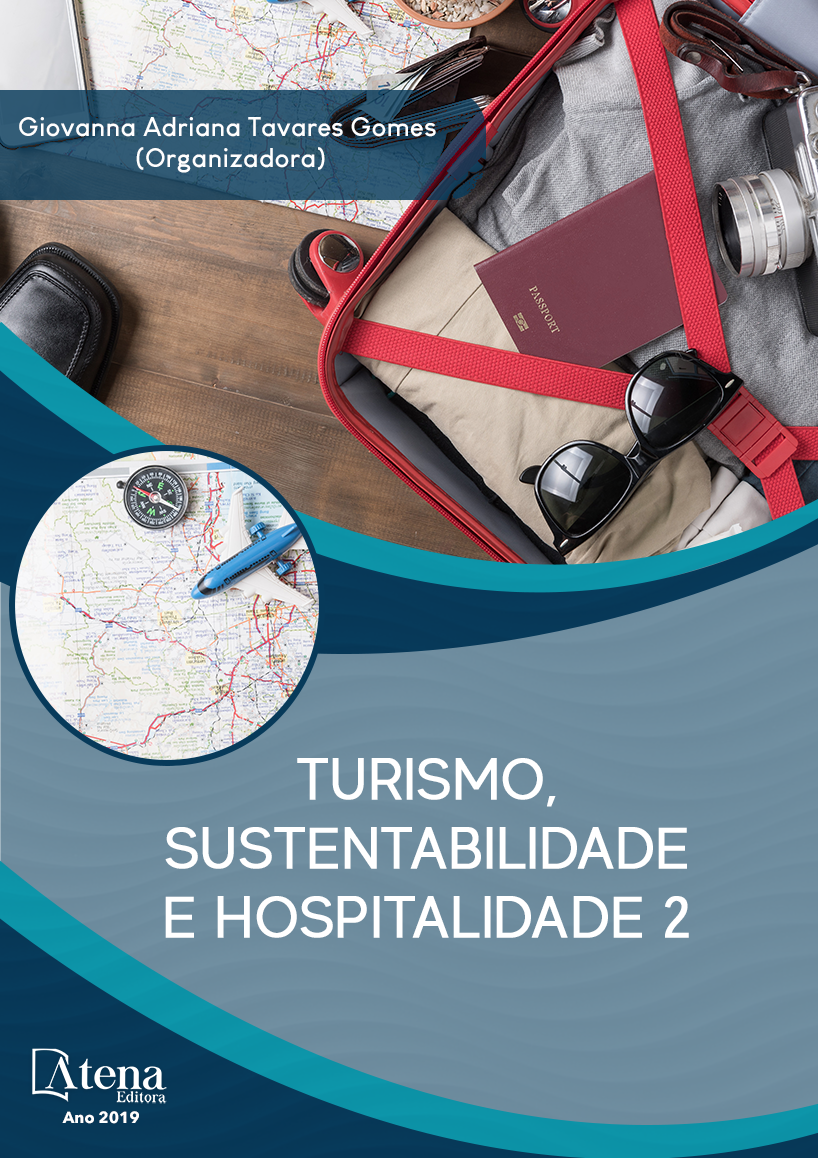
ANÁLISE TEMPORAL DO DESENVOLVIMENTO ORGANIZACIONAL DO EVENTO ESPRAIADO DE PORTAS ABERTAS NOS ANOS DE 2008 E 2016 NO MUNICÍPIO DE MARICÁ, RJ
Este artigo aborda o evento turístico
“Espraiado de Portas Abertas”, que é realizado
no Município de Maricá – RJ e busca identificar
a forma de participação da população local.
Para tanto, descreve-se seu funcionamento,
suas características e práticas sustentáveis,
comparando sua operacionalização na origem,
em 2008 e em 2016, assim como distinguese
as características do turismo rural e do
turismo de base comunitária, por se tratar de
um evento turístico realizado no espaço rural.
Para tanto, a metodologia baseou-se em
dados primários, com pesquisa de campo,
assim como secundários, mediante pesquisas
bibliográficas e documentais. Com base nestes
dados, concluiu-se que a tipologia do evento é
modelo de turismo de base comunitária, já que
promove a valorização da identidade cultural
local e sua devida inclusão social, devendo ser
tratados como objeto a ser transformado e não
com riscos de ser eliminado.
ANÁLISE TEMPORAL DO DESENVOLVIMENTO ORGANIZACIONAL DO EVENTO ESPRAIADO DE PORTAS ABERTAS NOS ANOS DE 2008 E 2016 NO MUNICÍPIO DE MARICÁ, RJ
-
DOI: 10.22533/at.ed.7301902093
-
Palavras-chave: Maricá; turismo rural; turismo de base comunitária; eventos; Espraiado de portas abertas.
-
Keywords: Maricá; rural tourism; community-based tourism; events; Espraiado de Portas Abertas.
-
Abstract:
This work aims to analyze the
Touristic Event “Espraiado de Portas Abertas”
(Espraiado Open Doors), which is located
in the city of Maricá - RJ, seeking to identify
the various forms of participation of the local
population, their culture, their know - how, as
they participate in the different stages of the
project. We will describe the general functioning
and main characteristics of the activities carried
out and their sustainable practices, comparing
the way it was developed from the beginning
to the present day. For this reason, this work
sought to make a contextualization between
rural tourism and community - based tourism,
because it is a tourism event developed in rural
areas. Therefore, the applied methodology was
based on secondary data that were collected,
in the bibliographic and documental. Finally,
it was concluded that the implementation of
a community-based tourism provokes the
appreciation of the cultural identity of the
populations, but must be treated as an object to
be transformed and not with the risk of being eliminated.
-
Número de páginas: 15
- Tatiana Macedo da Costa
- Sérgio Domingos de Oliveira


